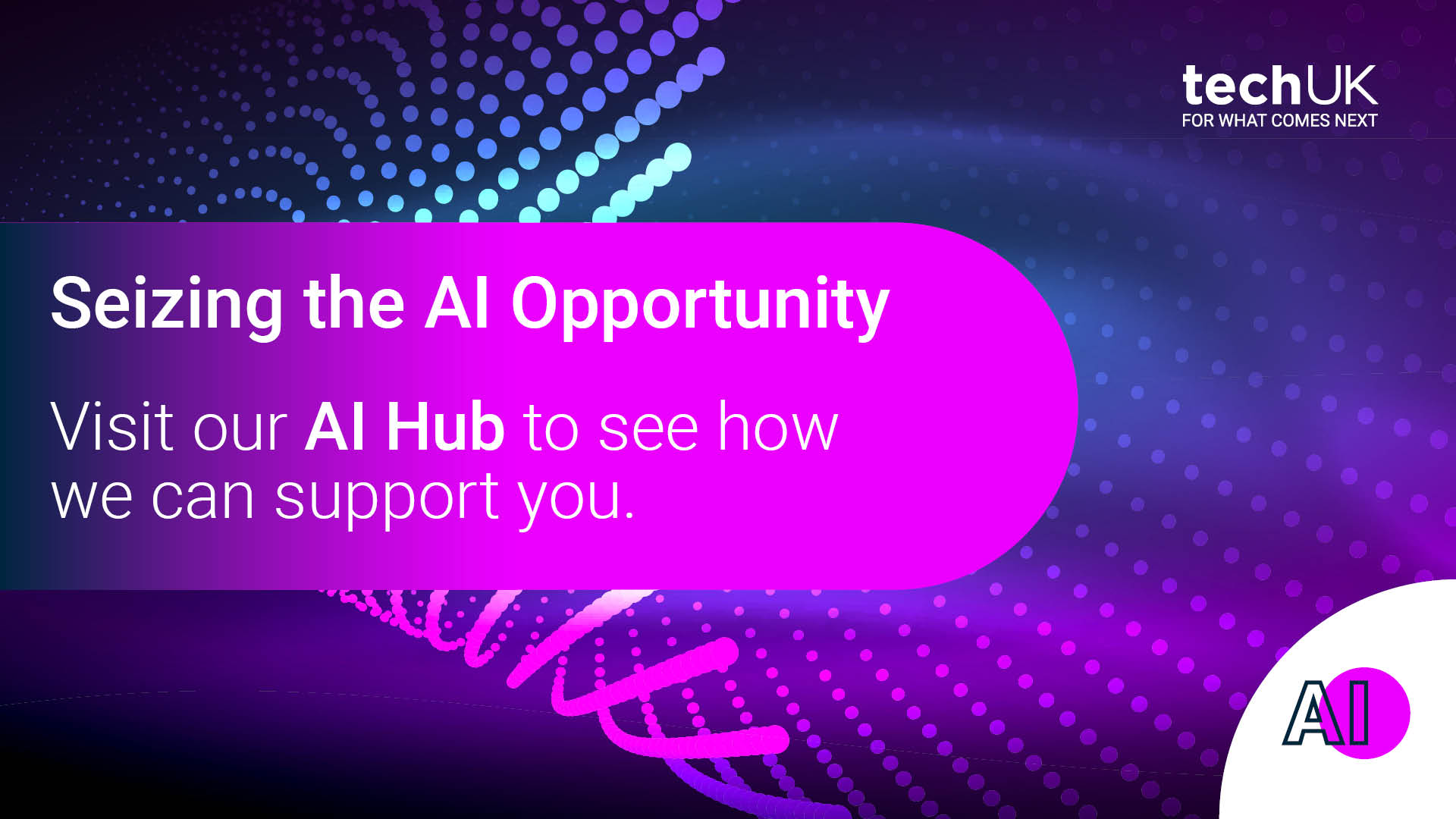Strategy, Enablement, Outcomes: Preparing Teams for AI success
AI is no longer optional – it’s at the top of the agenda for nearly every modern organisation. 77% of CEOs see AI as the start of a new era, yet only 44% believe their CIOs are truly “AI-savvy”1. As CTO of Resolutiion, I’ve seen that turning this opportunity into reality requires more than technology: it demands a clear strategy, empowered teams, and a relentless focus on outcomes.
Here’s how Strategy, Enablement, and Outcomes can prepare your team for AI success.
Strategy: Align AI with Vision and Value
A successful AI journey starts with a solid strategy grounded in business value and long-term vision. Rather than deploying AI for AI’s sake, clarify the problems you want to solve or opportunities to seize—whether improving customer experience, increasing efficiency, or opening new revenue streams. Treat preparation as king: Gartner predicts 85% of AI projects will fail to deliver on their promises due to poor preparation and skills gaps2, so fix foundational data and process issues upfront—AI won’t magically fix broken data pipelines.
Look ahead to trends like vertical AI (domain-specific solutions) and agentic AI (autonomous systems). AI “copilots” are emerging everywhere—coding assistants, customer service chatbots—and can augment human work. Ask: could an AI copilot help your sales team? Could a domain-trained model give you an edge? At Resolutiion, we combine specialised models with agentic capabilities, so our systems don’t just analyse problems—they help resolve them autonomously.
Decide what to build versus buy. With AI advancing at breakneck speed, buying proven solutions often makes sense. A robust strategy identifies which capabilities are core—and worth developing internally—and which are better sourced from partners
By adopting a top-tier AI platform, you tap into cutting-edge expertise and continual upgrades. This lets your team focus on integrating AI and fine-tuning it to your needs, rather than wrestling with foundational R&D.
Governance and ethics must be baked in from day one. Trust is the currency of AI adoption—without it, even the smartest system will face resistance. Define clear principles around data privacy, fairness, and accountability. JPMorgan, for example, now requires AI suppliers to document their training data, model development, and bias assessments. By prioritising security, ethics, and compliance, you build a competitive edge and avoid costly setbacks.
Finally, treat your AI strategy as a living framework. The AI landscape changes too fast for a rigid five-year plan. Set direction and end-goals but remain agile: revisit and refine your roadmap as new technologies or regulations emerge. At Resolutiion, we maintain a horizon scan of capabilities and continuously integrate relevant advances. Your organisation should do the same— plan for today, adapt for tomorrow.
Enablement: Empower Your People and Culture
Even the best strategy won’t succeed if your people aren’t on board. Enablement is about preparing everyone—from the C-suite to the front lines—to thrive alongside AI. This is ultimately a human transformation.
Start with leadership and knowledge. Close the AI-savviness gap by investing in AI literacy. Offer targeted training, workshops, and hands-on sessions with AI tools. Many CEOs upskill existing staff rather than hire new talent—your people already know your business. At Resolutiion, we run regular AI sessions for our teams and the market, demystifying the latest techniques. The result is a workforce that feels confident and curious about AI, not fearful.
Encourage experimentation and collaboration. AI adoption flourishes when teams on the ground actively participate. Designate AI champions in each department to identify use cases and mentor peers. Run hackathons or innovation days to surface grassroots ideas. When employees pilot AI in their own projects, they trust and use the solutions. They also form crucial feedback loops, revealing ethical or practical issues early. Inclusive experimentation turns AI from something imposed into something developed with employees.
Address cultural and organisational change. AI—especially agentic and autonomous systems—can unsettle routines and roles. Communicate clearly how AI will augment jobs, eliminating tedious tasks and unlocking creative potential. Embrace an “AI copilot” mindset: AI handles repetitive work, humans focus on judgment and strategy. In law, engineering, and beyond, AI copilots draft documents or summaries, with experts reviewing and finalising. Celebrate wins where AI-assisted teams achieve better outcomes, attributing success to the human-machine partnership.
Embed ethics and responsibility throughout. Train everyone interacting with AI on ethical use, bias avoidance, and data safeguards. At Resolutiion, we instil a “human in the loop” mantra—our AI systems never operate unchecked. This oversight empowers our talent to own AI outcomes and ensures accountability. When your people are skilled and ethically invested, your organisation can truly harness AI.
Outcomes: Focus on Real Impact and Iterate
With strategy and enablement in place, the final piece is an obsession with outcomes. AI success isn’t measured by your algorithms’ novelty—it’s measured by the tangible value they deliver.
From day one, define success in business terms: reducing processing time from days to minutes, increasing sales conversion rates, or cutting operating costs. Set clear metrics and track them religiously. Avoid getting lost in proofs-of-concept; keep deployment and business impact front and centre.
Start with small, high-impact pilots that demonstrate value quickly. Rather than a multi-year moonshot, pick a manageable use case that addresses an urgent need. Implement a pilot, measure results, and learn. Successful pilots build confidence and funding; unsuccessful ones teach you where to refine data, models, or approaches. This agile, outcome-driven method aligns AI with business needs and builds momentum through successive wins.
Plan integration from the outset. Don’t let pilots stall in isolated labs. Use open standards and APIs so AI tools plug into existing IT systems and feed other processes. For example, if an AI system generates predictive insights for one unit, build pipelines and interfaces for company-wide use or customer-facing apps. Integration may not be glamorous, but it’s often the last mile that determines scale.
Embrace failure honestly. If a project isn’t delivering, pivot or pull the plug. Foster transparency so teams feel safe reporting problems. Outcome measurements should guide genuine improvements, not vanity metrics.
Consider JPMorgan Chase’s example: its “Coach AI” assistant helped financial advisers increase gross sales by 20% from 2023 to 2024 and find information 95% faster3. By focusing AI on improving client service, JPMorgan turned technology into a concrete win—higher revenue and better customer experience.
Finally, sustain and compound outcomes. When you achieve a positive result, update standard operating procedures, train more staff on the AI-enabled process, and retire obsolete legacy methods. Monitor performance to catch model drift or changing conditions. A continuous improvement cycle turns today’s outcome into lasting transformation.
Achieving AI success is a journey that interweaves technology with strategic clarity, human empowerment, and business-focused execution. By prioritising a strong strategy, enabling your teams, and obsessing over outcomes, you create the conditions for AI to flourish. Stay adaptive—embrace new developments in vertical and agentic AI, and balance building in-house with leveraging external expertise. At Resolutiion, we’ve built our platform and culture around these principles, and help our clients do the same. The AI revolution is accelerating; with the right preparation, your team can ride this wave to new heights. Strategy, Enablement, and Outcomes in balance make AI success not just possible—but achievable today, and a foundation for even greater things tomorrow.
techUK - Seizing the AI Opportunity
The UK is a global leader in AI innovation, development and adoption.
AI has the potential to boost UK GDP by £550 billion by 2035, making adoption an urgent economic priority. techUK and our members are committed to working with the Government to turn the AI Opportunities Action Plan into reality. Together we can ensure the UK seizes the opportunities presented by AI technology and continues to be a world leader in AI development.
Get involved: techUK runs a busy calendar of activities including events, reports, and insights to demonstrate some of the most significant AI opportunities for the UK. Our AI Hub is where you will find details of all upcoming activity. We also send a monthly AI newsletter which you can subscribe to here.
Upcoming AI Events
Latest news and insights
Subscribe to our AI newsletter
AI and Data Analytics updates
Sign-up to our monthly newsletter to get the latest updates and opportunities from our AI and Data Analytics Programme straight to your inbox.
Contact the team
Visit our AI Hub - the home of all our AI content:

Enquire about membership:












